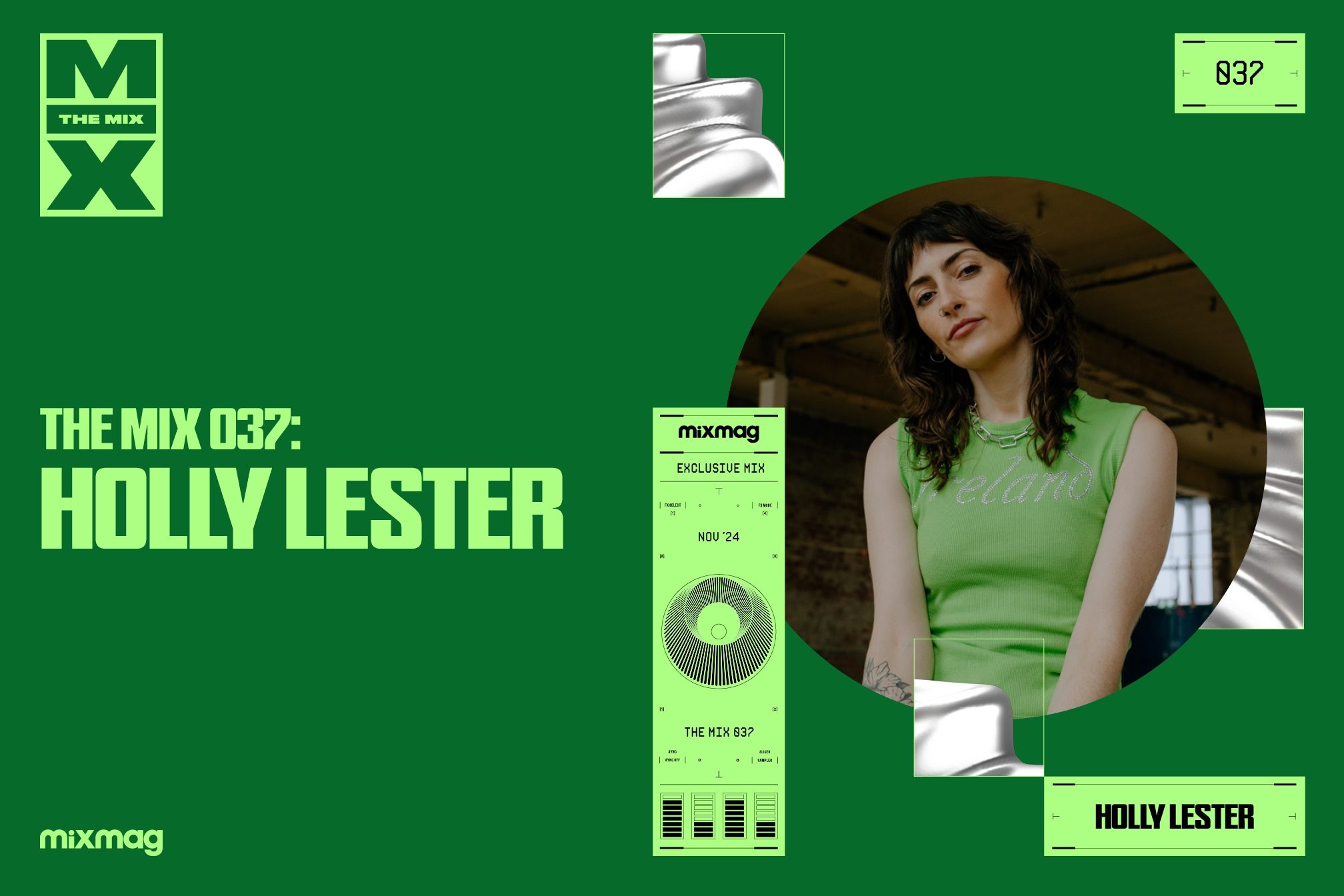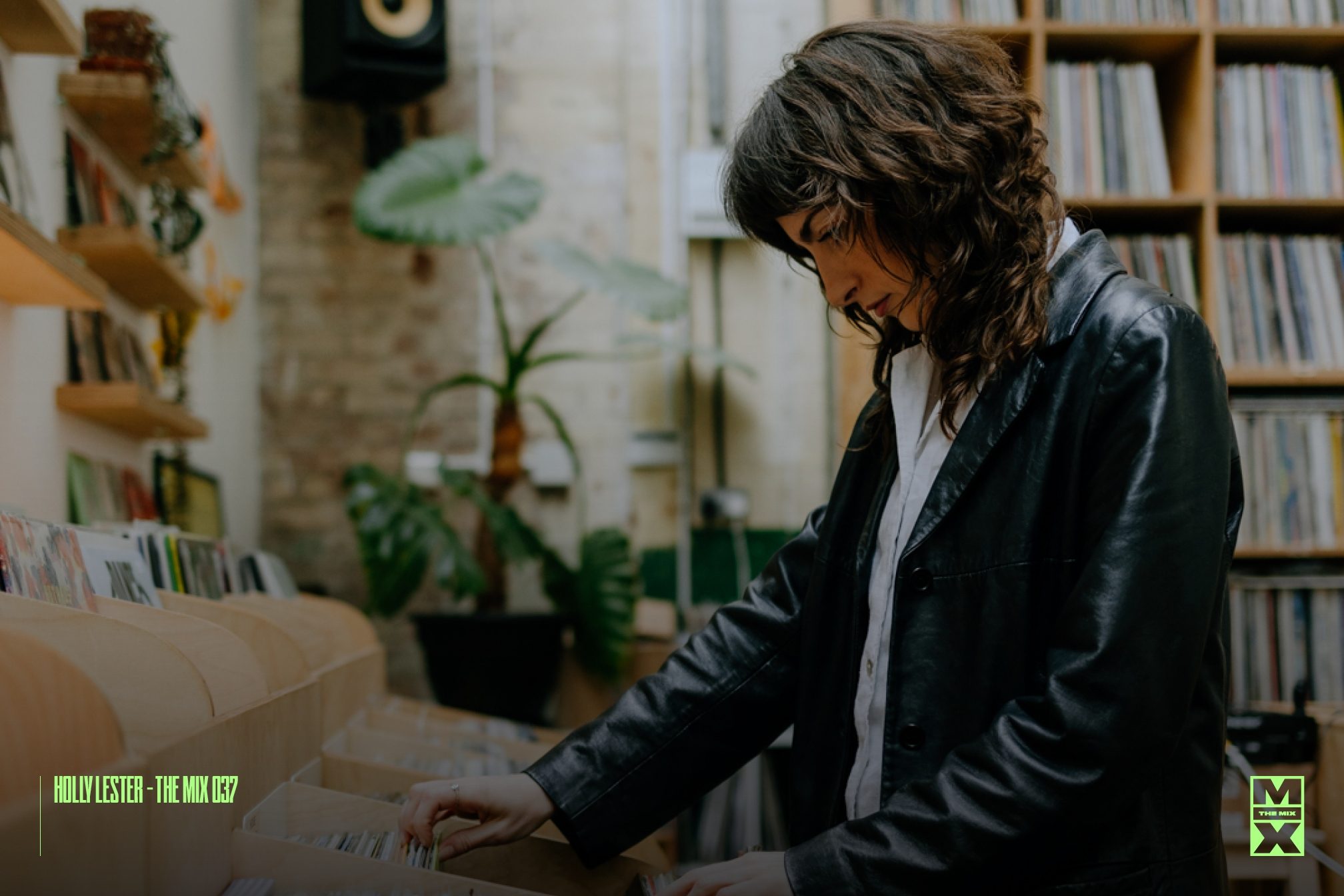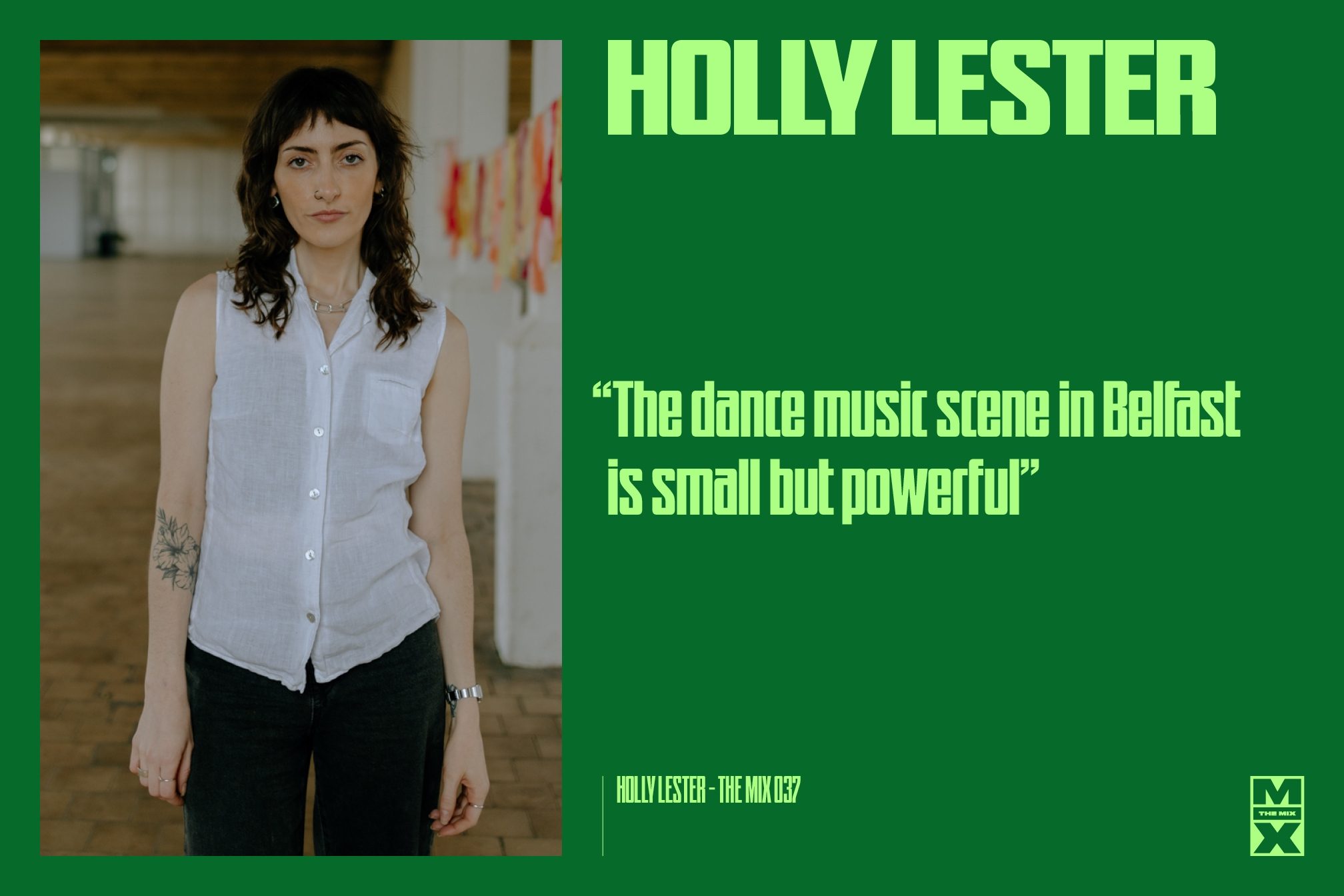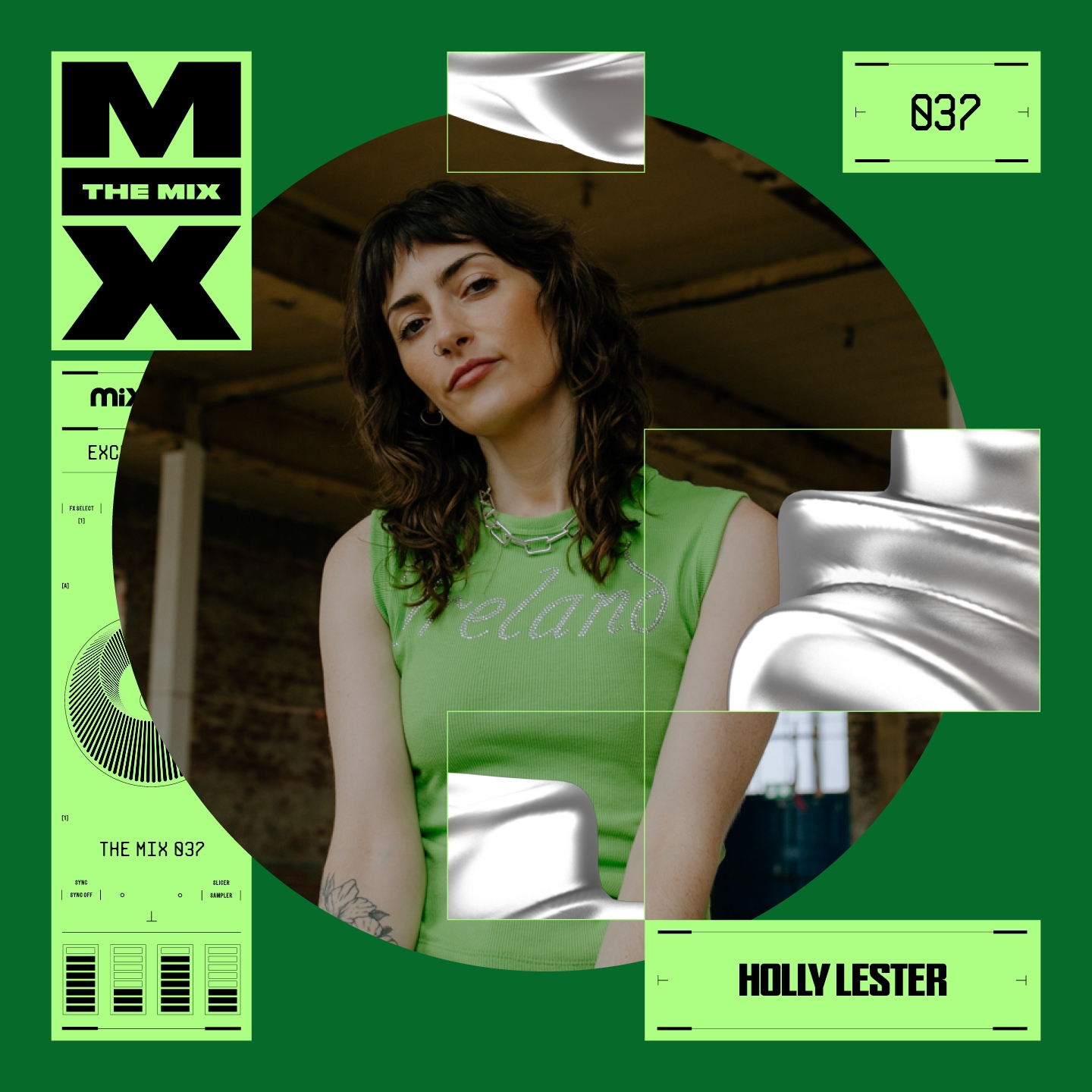 Music
Music
The Mix 037: Holly Lester
Holly Lester shares a mix influenced by "quality tech-house" and speaks to Meena Sears about her musical upbringing, campaigning for better nightlife conditions in Northern Ireland and why cultural spaces are so important in a post-conflict society
Holly Lester is more than just a DJ. Born in rural Northern Ireland, in county Armagh, Lester is a DJ, activist, label head and, more recently, a producer. In her 15-year-long career she has carved a name for herself as one of the best known figures in Northern Ireland’s underground dance music community.
Having learned to mix at the age of 14, Lester moved to Liverpool for university, cutting her teeth in the city’s vibrant electronic music scene. In 2013 she landed a residency with the Chibuku Shake Shake collective, and in 2014 she played her second season in Ibiza, gaining a residency at the world-famous Sankeys nightclub (which has since closed down).
From here, Lester’s career snowballed, leading her to play sets at Printworks, The Warehouse Project and AVA Festival. Starting out focusing on house selections, Lester now jumps between genres, with a unifying emphasis on percussion. This masterful ability to play with the unexpected is a reflection of her deep and diverse musical education, which the DJ largely credits to her father, himself a devoted music lover and collector.
Growing up, there was fairly little going on in terms of electronic music outside of Lester’s family home. But inside, the young DJ was being introduced to everything from trance to acid house to breakbeat. “My dad loved a broad range of stuff,” says Lester. “He wasn't a DJ, so it wasn’t necessarily super underground, it was just a broad range of electronic music. Anything from ambient to Haçienda classics to Café del Mar compilations to all the big electronic artists of the time like Orbital, The Orb, The Chemical Brothers, The Prodigy, The Shamen, and The KLF. I learned a lot of electronic music history from my dad.”
“My parents also met in Ibiza in the summer of ‘88,” she adds. “Supposedly the island’s best year – the summer of love. My dad remembers hearing A Guy Called Gerald’s ‘Voodoo Ray’ on the dancefloor and it's now one of my favourite house records,” says Lester.
So, despite a lack of physical nightlife experiences, dance music culture was a vital force in Lester’s upbringing. Flash forward some years later and Lester is now co-founder of Free The Night, a non-profit organisation advocating for the improvement of nightlife in Northern Ireland. Alongside Boyd Sleator, Lester campaigns to create a safer and more progressive environment for the dance music community in her home country and argues for the industry’s recognition as a vital cultural Asset.
She also runs two independent record labels Terrazzo and Duality Trax. With the former Lester joins her friend Steffan Todorović in curating compilation EPs of various tracks they've been sent and are feeling, with titles such as 'Four Really Good Tracks', while she founded the latter with the intention of platforming more female-identifying producers.
“The theme of duality has always been present in my life and it’s become very meaningful,” she explains. “Feeling like you're always up against your male counterparts is a challenge, so I wanted to do my part in trying to adjust that gender imbalance in the industry. I know that gets talked about a lot, but I hadn't really seen many labels doing it.”
Duality Trax recently presented its first party and panel talk at Amsterdam Dance Event this year, a testament to its pioneering role in the industry. Prior to this, Lester played sets at Belfast’s AVA Festival in May as well as making a debut appearance at Berlin’s Watergate and Secretsundaze’s Multi Multi Festival in Hackney Wick – a personal favourite for the DJ.
More recently, Lester has been working on the seventh Duality Trax release, ‘Time Out’ by Voodoos & Taboos. Set to drop on November 8, the EP also features a remix by Australian producer Bertie.
We sat down with Lester to find out more about her Free The Night campaign and the cultural value of nightlife, while her mix explores quality tech-house among its selections.

How would you say your DJ sets have evolved over time? Do you think they’ve become more refined, or more expansive?
I would say both of those things at the same time – even though that seems counter intuitive. On the one hand, they’ve expanded in the sense that I’ve definitely started to incorporate more genres into my sets. When I first learned to mix, it was purely house records, but in the last six years I’ve started to play more garage, breakbeat, progressive and trance, depending on the mood.
I think the scene in general has moved in that direction where it's a lot more free and there’s a lot less judgement. Seven years ago, if you started to play trance, your set would have got some funny looks. But now, it feels more like you can do what you want. But also, obviously the longer you're doing this and the older you get, the more you know what you definitely like, what you definitely don't like, and what you feel best represents you. It’s not so much of a genre, it's more of a mood and a feeling. I think that that's something I know very well about myself now, whereas at the start, it was more of a learning curve.
Is that mood or feeling reflected in your production style?
Finding your sound with production is a whole different journey – it's much more difficult. Especially when you're trying to come up with something that feels true to yourself, incorporates all the different strands of influences, but also isn't doing what everyone else is doing. Production is a fairly new thing for me. I've been producing on and off for about seven years, but I've never been that consistent. I’ve also struggled a lot with imposter syndrome. So it's definitely harder, but I think I'm getting there. I’ve had some nice opportunities to dip my toe into releasing via remixing; one remix came out earlier this year on Hidden Assets and the other one is coming soon on Lost Palms.
Read this next: Imposter syndrome in the music industry is rife, but it's not impossible to overcome
Can you tell me about your Free the Night campaign? What has it achieved so far?
The thing to preface this whole conversation with is that it takes a long time to move things to government and policy – especially in Northern Ireland. We’re three years old at this stage and we’ve seen some wins, but they are quite small in the grand scheme of things. I think the main win for us is that we have established several contacts within the government – like in the Department for the Economy and the Department for Communities – and they have started to understand what the night-time economy is and why it is so culturally important.
Everything we do has always come from the angle of culture and why culture is so important in a post-conflict society like Northern Ireland. We’re not really looking at this from an economic standpoint; there's already a lot of other night-time organisations that do that. In fact, I think we’re the only charity in the nightlife advocacy realm, the rest are trade bodies and things like that.
It’s really important to try and change the mindset of people working in government, and the general population. I think we have started to do that and people are starting to understand what we’re talking about, which is huge. Even in the last six months, we’ve seen the formation of a ‘Night-time Economy Taskforce’ by the Department for the Economy - something we have been asking for for a long time - and a Night Czar appointed by the Belfast Business Improvement Districts (BID). It’s not exactly the way we’d like the role to sit, but it’s a small step in the right direction and we’re really enthusiastic about what could be achieved through it.
What more needs to be done?
The immediate issues we’re looking at are night-time transport – we believe we are the only city in Europe without it – and a review of the licensing laws. In its present form, the system is completely hindering the night-time economy and especially the creatives within it. We have some of the earliest closing times for nightclubs in Europe, at 3:AM, and the licensing system is basically impossible to get on and extremely expensive; it’s just not a fair system.
We believe there's a small handful of people that own all the licences in Northern Ireland. And, because it's a one-in-one out system (called the surrender principle), it just makes it really difficult for other people to get on the ladder and open a venue. So, the way things are at the moment, there just aren't really any venues in Belfast, but if they changed the system, there could be.
What we’ve also suggested is, if they’re not going to change the system, give us a new licensing category, a cultural licence category that sort of bypasses the one-in-one out process, is less expensive, and more accessible to creatives, entrepreneurs and anybody who wants to contribute to nightlife in the cultural way. It's really important to have these spaces, even if they're not seen as economically viable.
What does nightlife contribute to society and also to people individually?
We’ve seen over the pandemic how important nightlife and dancing is for everyone. And there are more stats coming out all the time about how good dancing is for you. Measured up against antidepressants, dancing comes out really high.
This is one of the areas that we really hope to study in the near future. We have a really amazing researcher from Queens University and we want to properly study nightlife in a post-conflict context, like we have here in Northern Ireland. Nightlife played a huge part during The Troubles (we can only say this anecdotally but we know it's true) in bringing the two sides of the community together where they were completely divided before.
The role of punk has been spoken about quite a lot, but we haven't seen so much about the role of dance culture. We’re actually making a documentary this year that’s been sponsored by Jagermister’s SAVE THE NIGHT fund about the value of the dancefloor, so we’re hoping to answer a few of these questions in our research.

Why do you think that nightlife is so misunderstood by policy makers and wider society in Northern Ireland?
I guess it's different here because it's a really conservative country, historically, it's always been that way. The influence of the Church on the whole island was huge historically and still is. We only got gay marriage rights and abortion rights a couple of years ago, so we’re talking about a country that is very, very religious. Of course some people are going to see nightlife as something that is taboo and… unholy I guess. But that’s a massive misconception obviously, and a narrative we are trying to change.
A bill to extend nightclub opening hours in the Republic of Ireland recently went to cabinet, does that give you hope?
Yes, absolutely. Our friend and advisor Sunil Sharpe has been working on a campaign in the south called Give Us The Night for about 15 years, so he’s been really instrumental in getting the licensing bill through. It hasn’t come into play yet but it should do in the next year or so, we hope.
Sunil’s work has allowed us to sort of streamline things and we rely heavily on him for advice. It definitely gives us hope that we can change things here because, like I said, the whole island of Ireland has historically been very conservative and religious. So, if the south is moving in that direction, then we can as well.
That being said, Dublin is a much bigger city than Belfast and it's a lot more multicultural, so I feel like Dublin has moved with the times a bit more than Belfast has. You've got to remember that only 30 years ago, Belfast was a war zone. We’re behind in a way that Dublin isn’t because of the civil war we had here. Even in the early to mid-2000s there were still things happening in this country that set us behind. Because of that, people didn't want to come here as tourists, people didn’t want to study here, people didn’t want to stay here. And we’re still feeling the effects of that now – very much so.
What is the Belfast dance music community like?
The scene in Belfast is small but powerful. Nearly everyone within the community is supportive of what others are doing in the city, which is really nice, and it feels like everyone knows everyone. Despite the lack of venue space, there are always interesting things happening.
We have such a large amount of talent for such a small country. In terms of the artists coming through right now, there's so many, people like EMBY, Body Clinic, HANNAH, Reger – but most of these artists have had to move away. There are very few touring artists remaining here. It really highlights the issue we have with creative drain, which is another thing we are trying to address at Free The Night.
Read this next: Belfast's dance music scene is one of the most vibrant on the planet
Do you think there is an intrinsic link between music and politics?
Yes, 100%, especially with electronic music. I think that's one of the reasons I connect with the scene so much, it has always been inherently political from the beginning and I’d say I am quite political, or at least outspoken, on the issues I care about. My platform is a way for me to speak about these causes and I try to use it for the right reasons.
Can you tell us about your mix?
I’ve been playing more records recently after over a decade of mainly playing digital, and this mix is a reflection of that shift. About half of the tracks are on vinyl, including some nice finds I picked up specifically for this mix at Sound Advice and Voodoo Soup in Belfast. A few selections are new releases from my own labels, Duality Trax and Terrazzo, while others I’ve collected on my travels or been gifted over the years.
My love for quality tech-house has definitely been reignited recently, and I think that is a big influence for this mix and my sets in general right now. You’ll hear tracks from artists who regularly make it into my set lists – Voodoos & Taboos, Housey Doingz, The Trip, Liquid Earth, and Black Loops – and some new favs like La La and Christopher Ledger. Huge thanks to Marion Hawkes for letting me record in her beautiful record store Sound Advice - go check it out if you are in the city!
Check out Duality Trax on Bandcamp
Meena Sears is Mixmag's Digital Intern, follow her on Instagram

Tracklist:
CSM - Shine
Black Loops - Fresh 18
Mojolators - Just Begun
ACME - Soul Of Life II (Original Mix)
Housey Doingz - Dwarves in Dub
Dani Labb - 80090
Christopher Ledger - Do It Like That
The Tony Thomas Experience - Fatty
Space Manoeuvres - Pluto Disko (Mike Monday Duck(EN) Funk(EN) Mix)
Germain CLS - The Noise
Macé - Acid Tales (Pt. 2)
Voodoos & Taboos - Time Out
The Trip - Big Buzz (Liquid Earth Remix)
La La - Sacred Dance
Biodive - Jol Vriend
Fozbee, Cooz & Smooth - Free Your Mind (Jack Smooth 3.0 Mix)


